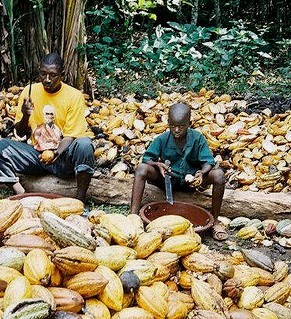|
Ghana Human rights | Society No money to stop Ghana child trafficking
The sad new was announced by the Accra office of the International Organisation for Migration (IOM) today. The IOM has been the key coordinator in rescue operations freeing Ghanaian children from trafficking and slavery-like working conditions.
Months of rehabilitation and medical assistance including psychosocial counselling are followed by the reunification of the children with parents or extended families. The children are supported to attend school or take on apprenticeships as well as given follow-up medical care as they continue to suffer physically from their trafficking experiences. Parents are also provided with assistance that allows them to set up small businesses that could support their families and so lessen the chances of re-trafficking. IOM has also tried to reach out to traditional chiefs, communities where trafficked children come from and local partners to sensitize them to the dangers and consequences of trafficking children and to inform them on various legislations that would affect them, including Ghana's 2005 Human Trafficking Act. Since 2002, the US State Department's Bureau of Population, Refugees and Migration (PRM) has funded IOM's Ghana programme. However, in recent years as funding has declined, IOM has been supported by private donations as well, including those raised by enterprising children in the US. Currently, almost 650 of the 711 rescued children over the past eight years continue to attend school or engage in apprenticeships with the help of private sponsors. Another 20 are in senior high schools with 6 rescued children having ended their apprenticeships and now working. "The US government has been extremely supportive over the years, having donated just over US$ 1.5 million to help IOM in its work to change the lives of these children. However, with that funding now ending, we have to find other sources. If we don't, thousands of children will continue their lives of forced labour and face a heartbreaking future," says Dyane Epstein, IOM Chief of Mission in Accra. "It will also mean that the group being rescued this week will not be able to have the amount of reintegration assistance they need, exposing them to a high risk of re-trafficking," she adds. IOM was therefore appealing for funds from other donors. By staff writer © afrol News - Create an e-mail alert for Ghana news - Create an e-mail alert for Human rights news - Create an e-mail alert for Society news
On the Afrol News front page now
|
front page
| news
| countries
| archive
| currencies
| news alerts login
| about afrol News
| contact
| advertise
| español
©
afrol News.
Reproducing or buying afrol News' articles.
You can contact us at mail@afrol.com









